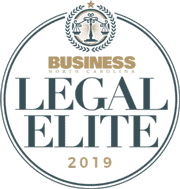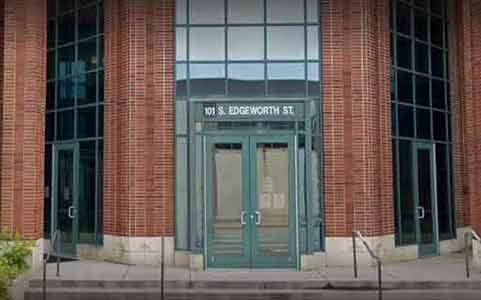
Bankruptcy Attorney Guilford County
Every day individual consumers and business owners across Guilford County make the difficult decision to file for bankruptcy. They do so after unsuccessfully attempting to pay down balances due, perhaps talking with a debt relief agency and taking other measures to make things right with their creditors.
Individuals have two consumer bankruptcy options to choose from. Chapter 13 bankruptcy, for example, may allow you to save your Greensboro or High Point area home from foreclosure or your vehicle from repossession. However, Chapter 7 bankruptcy is ideal if you're looking to eliminate debt altogether. Filing a consumer bankruptcy isn't as simple as picking one over another. There are qualifying factors, some of which are specific to North Carolina, that you must meet to file the appropriate type of bankruptcy for you. A bankruptcy attorney in Guilford County at Ivey McClellan can help decide which option is appropriate in your situation.
If you are a business owner struggling to keep your High Point, NC company afloat, you can count on our Guilford County bankruptcy lawyers to help you identify which debt relief option is best suited for your situation. Chapter 7 is referred to as liquidation bankruptcy, whereas Chapter 11 and 13 bankruptcy are known as reorganization. If your goal is keeping your High Point business operational, then you may opt to file one of the latter debtor bankruptcy types.
Below, we'll share statistics regarding bankruptcy filings on a national, state, and county level. This insight will hopefully let you know how, despite how isolating your financial predicament may seem, you're not alone in your pursuit of debt relief.
We'll also address what the qualifying criteria are for filing under certain chapters of bankruptcy law in Guilford County and address what you can expect as your case moves through the legal system.
The Latest Bankruptcy Statistics To Know
Each year, hundreds of thousands of individuals and corporations file for bankruptcy here in the United States. For example, statistics published by the U.S. Courts show that bankruptcy filings reached 387,721 nationwide in 2022.
According to data compiled for January 2023 by the American Bankruptcy Institute (ABI), there were, for example, 31,087 cases bankruptcy cases filed nationwide. Of those, the breakdown in types of filings was as follows:
- Individual bankruptcy (all types): 29,545 filings
- Individual bankruptcy (specifically Chapter 13): 13,702 filings
- Commercial bankruptcy (all types): 1,694 filings
- Commercial bankruptcy (specifically Chapter 11): 257 filings
- Subchapter V (reserved for small businesses): 137 filings
Those same ABI statistics show that the following chapters of individual bankruptcy rates showed an increasing trend in January 2023: Chapter 7, Chapter 11, and Chapter 13. The most notable increases in commercial filings were Chapter 11 and Subchapter V cases.
North Carolina Bankruptcy Filing Statistics
Additional data published by the ABI shows that in 2022, there were 6,188 total bankruptcy filings in North Carolina. Of those, their breakdown was as follows:
- Chapter 7: 1,992 filings
- Chapter 11: 75 filings
- Chapter 13: 4,117 filings
- Other bankruptcy chapters: 4 filings
According to ABI, when the total number of bankruptcy filings is compared to our state's population, it shows that North Carolina is 34% below average in comparison with other states. Filing rates in the Tar Heel State also appear to be on the decline.

Bankruptcy Statistics by North Carolina Counties
The latest data published by the U.S. Bankruptcy Court for the Middle District of North Carolina shows that the majority of cases filed in and around the Greater Piedmont Triad Region happen in the following counties:
- Davidson County
- Forsyth County
- Guilford County
- Rowan County
- Rockingham County
- Almanace County
As you're likely aware, while Greensboro, NC is wholly located in Guilford County, High Point spans four counties. While most residents are also located in Guilford County, it also encompasses parts of Forsyth County, Davidson County, and Randolph County, so all but the latter are accounted for in the list of Piedmont Triad counties with the highest bankruptcy filings above.
Why Individual Consumers File Bankruptcy in Guilford County
Now that we've covered how common filing for bankruptcy in North Carolina is among consumers and businesses, let's discuss why they pursue this form of debt relief.
In our years of experience in representing clients, our bankruptcy attorneys in Guilford County have found that there are many different reasons North Carolina residents feel compelled to pursue this form of debt relief. Some of the more common reasons they file for bankruptcy include debtors are:
- Regularly receiving harassing phone calls from their creditors
- Drowning in mounting medical bills
- Having difficulty paying down personal loans they owe
- Being threatened with the repossession of their car
- Facing a home foreclosure
- Dealing with significant credit card debt
- Unemployed with few prospects for finding a job
Why Guildford County Businesses File Bankruptcy
Our experience is that small businesses or corporations here in Guilford County end up filing bankruptcy for the following reasons:
- Do away with or reduce unsecured debt and deploy new ways to attract investors without the assumption of additional debt, all with the goal of restoring profitability
- Facilitate the appointment of a bankruptcy trustee to oversee the sale of business assets and the transfer of proceeds to their creditors
- Give themselves an opportunity to repay what they owe and keep their valuable assets by restructuring the debts and making timely payments per a court-approved repayment plan
While most Guilford County businesses that file Chapter 7 bankruptcy end up folding (ceasing operations), those who pursue Chapter 11 or 13, or reorganization bankruptcies, view their fillings as a fresh start, giving them a chance to infuse new efforts in their company without feeling the pressure of creditors breathing down their necks. A succinct repayment plan being in place gives potential investors confidence in investing in the company, knowing that their investment will be more secure.
Consumer and Business Bankruptcy Options Available in Guildford County
When it comes to debt relief, an Ivey McClellan bankruptcy attorney in Guilford County regularly assists individuals, small businesses, and corporations in filing under the following chapters:
Chapter 7 Bankruptcy
As hinted at above, Chapter 7 bankruptcy allows consumers in High Point, Greensboro, and elsewhere in Guilford County to secure relief primarily from unsecured debts and to retain what's known as exempt property, such as jewelry, a vehicle, and tools, provided their value doesn't exceed certain limits.
Additional criteria individuals wishing to qualify to file Chapter 7 bankruptcy must meet include:
- You have limited or no access to disposable income
- Your outstanding debt affects your ability to take care of your essential financial responsibilities and would take more than five years to pay off
- You must have a median household income at or below the North Carolina threshold for a family your size (an amount that is generally adjusted annually for increases in costs of living)
- Your debts are more than one-half of your household's annual income
Greensboro, High Point, or any other Guilford County residents wishing to file Chapter 7 bankruptcy must pass a means test, which involves plugging in what amounts to debt-to-income ratio information to ensure they meet the qualifying criteria outlined above to file.
Businesses may also file Chapter 7 bankruptcy if they find themselves in dire financial straits and their only option for repaying creditors is to sell off their assets to do so. This type of business bankruptcy results in the closure of a company, though.
Chapter 11 Bankruptcy
Reserved primarily for businesses but used by individuals as well, Chapter 11 is a reorganization type of bankruptcy. Guilford County companies that pursue it can remain operational during the 120 days as they devise a reorganization plan and thereafter.
One detail that's unique about a Chapter 11 bankruptcy is that filers may request an extension of their repayment period beyond five years. Another detail that makes a Chapter 11 bankruptcy different from other types is that an "Absolute Priority Rule" applies to such cases. Under this doctrine, debtors are generally obligated to repay creditors 100% of their unsecured debt, with few exceptions.
Chapter 13 Bankruptcy
This type of bankruptcy is accessible to both individuals, including married couples, in High Point, Greensboro, and other parts of Guilford County. Individuals that don't qualify to file for Chapter 7 bankruptcy will often pursue Chapter 13 instead.
Chapter 13 is also a type of reorganization bankruptcy. It allows consumers a 5-year period to address any arrearages that they have, such as overdue car payments, a past due mortgage, delinquent student loan balances, and overdue family support obligations and income taxes while, at the same time, doing away with unsecured debts like medical bills and credit cards (without these having to be paid in full). Consumers wishing to file this type of bankruptcy must demonstrate the means to adhere to the repayment plan they enter into.
Some Guilford County businesses file Chapter 13 bankruptcy; however, it's not as common for them to do so as is the case with Chapter 11.
Since there are many rural areas surrounding High Point and Greensboro, it's important to note that our Guilford County bankruptcy attorneys regularly assist farmers in their pursuit of debt relief. There is an agriculture bankruptcy option, which incorporates various sections of the code, including Chapter 7 liquidation bankruptcy. There are also municipal bankruptcy options when an issue affects the agricultural industry on a wider scale.
What To Expect When Filing for Bankruptcy in Guilford County
Ask any Guilford County bankruptcy lawyer, and they'll all tell you the same. No two cases are the same. However, some common steps involved include a debtor:
- Needing to fill in and submit their bankruptcy petition to the court
- Completing a means test
- Surrendering assets to be liquidated to the court
- Enrolling in a pre-bankruptcy credit counseling course
- Having to attend a meeting of creditors
- Devising a repayment plan (if you're pursuing a reorganization type of bankruptcy)
- Taking a pre-discharge debtor education course
- Continuing to make timely payments per the reorganization plan and notifying the presiding trustee of any impediments to you doing so
The Benefits of Working With a Guilford County NC Bankruptcy Lawyer
Consumers can file bankruptcy on their own without the assistance of legal counsel; however, it's not advisable to do so. Bankruptcy law is constantly changing, which can affect the qualifications for filing, exempt assets, how often or how soon after a discharge you can file, and more.
As you imagine, navigating all of the steps above, keeping up with changes in code, and finding the answers to questions that may inevitably arise without a Guilford County bankruptcy lawyer can be challenging, thus why we urge you to carefully consider whether it's in your best interest to take matters into your own hands. You may lose your opportunity to have your debts discharged or to enter into a repayment plan if you make any errors.
A bankruptcy attorney in Guilford County is ready and waiting, available to answer any questions you may have about this form of debt relief available to you or your business. We serve clients throughout the Piedmont Triad region of North Carolina, whether you live in Greensboro, High Point, Winston Salem, Burlington, or anywhere in between. Call or email us to schedule your initial consultation today.
Schedule An Appointment
Office Locations
Greensboro
305 Blandwood Ave
Greensboro, NC 27401
Phone: (336) 274-4658
Fax: (336) 274-4540
Eden
551 Monroe Street
Eden, NC 27288
Phone: (336) 623-4600









